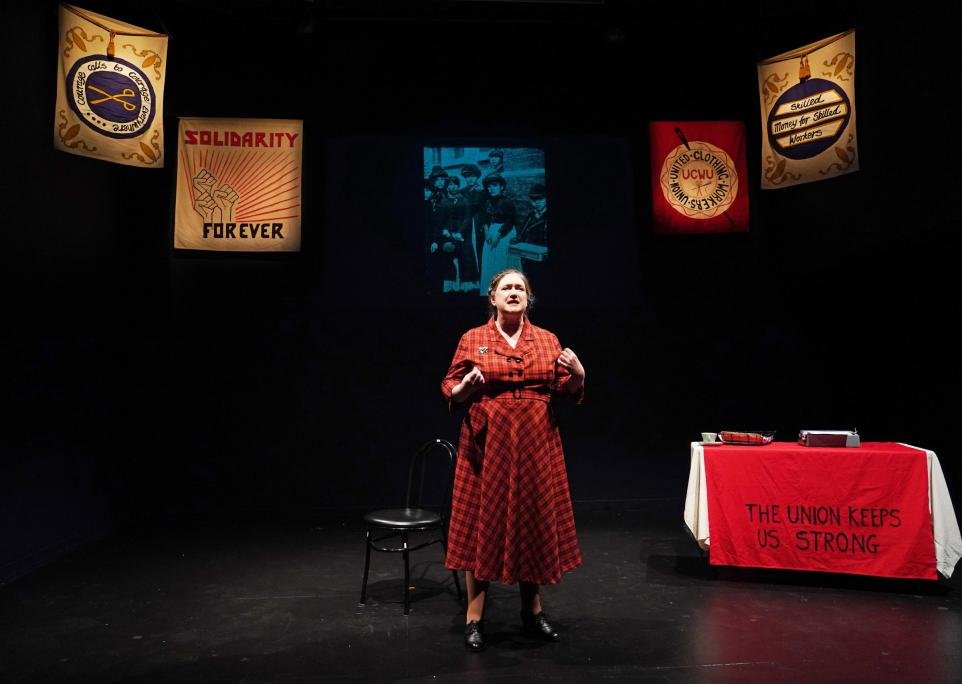Blue Fire Theatre Company aim to tell the “important untold stories of the people of the past”, and they certainly hit the brief here. Sara Wesker led clothing trade strikers, all young Jewish women, who were paid a pittance for long hours of work, in 1928 and 1929. But that’s just the tip of her story.
A true believer in equality, fair play, and fair pay, she battled against Mosley’s fascists in Cable Street and led many strikes. Her’s is an extraordinary story, brought to light in a production that is disturbingly relevant, “It’s easier to spot the fascists if they’re all wearing the same suits”, and her motto, “The world is changed by the women you push too far”, is emblazoned across the programme and the free badges given out to the audience.
It’s expertly performed by Lottie Walker, with a well-structured script by J.J. Leppink that uses music and slides to minimal, but maximum, effect. The conditions of the East End, the “flood” of immigration, and the abuse of the workers are all vividly illustrated, and the history is dealt with well. Communism is out of favour now, but it’s a sharp reminder of how much it meant, and the hope it offered, to working class people then.
Walker gives a beautifully paced performance, allowing us to see the personal sacrifices she made to challenge the ruling ideology and order, to call out strikes, and to be a “very difficult woman.” It sounds like a criticism, but it’s actually a supportive one, that I wanted to know more about her. This is an effective hour, but sometimes, perhaps, the story was skimmed through a little quickly.
However, it played to an almost capacity house, full of “lefties”, who cheered and supported Sara Wesker’s story. You may have clocked her surname. Her nephew was Arnold Wesker, who became a major playwright in the late 1950s and 1960s with his autobiographical play Chicken Soup With Barley and his major hit, Roots. It adds another layer to a fascinating story, and I, for one, felt privileged to be told it.



 6.52°C
6.52°C 